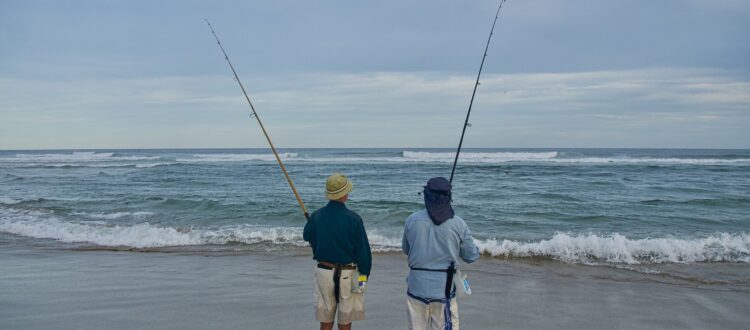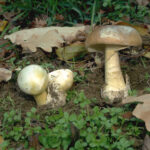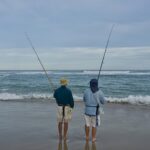
There are an estimated five million recreational fishers in Australia and recreational fishing is becoming increasingly popular. Seafood is generally a safe and healthy food but each year Australians are affected, and even hospitalised, from illnesses such as bacterial infection, fish parasites, scombroid poisoning and ciguatera poisoning from their own catch. But these cases could be significantly reduced with knowledge on what to look out for and correct handling methods.
Firstly, always be aware of warnings from local authorities about any pollution risks in the waters where you are fishing or gathering shellfish or crustaceans. This includes chemical contamination, flood water contamination by sewage, blooms of algae, or shellfish toxins.
Here are 5 other food safety tips you need to be aware of when fishing:
- Escolarand Oilfish can cause oily diarrhoea in between 45 and 67 per cent of people who eat them. Don’t eat these fish if you are pregnant, have a bowel problem or malabsorption. If you are eating these fish for the first time, consume only a small portion and avoid if you have any symptoms.
- Ciguatera poisoning can cause numbness around the fingers, toes and mouth, a burning sensation when in contact with cold, joint pain, nausea, itchiness and, for people with high sensitivity, breathing difficulties. Avoid large predatory fish over 6kg and coral trout, Spanish mackerel, reef cod, barracuda, emperor, groper, sturgeon, trevally and kingfish.
- Scombroid or histamine poisoning can occur when certain fish types, such as tuna, mackerel, marlin, skipjack and bonito, have been left at room temperature for too long before it is eaten. Chill caught fish to 5°C or below as soon as possible after capture. If left at room temperature, a high level of histamine builds up in the fish flesh. Often misdiagnosed as an allergic reaction, symptoms vary but include burning and tingling of the lips and mouth, dizziness, flushing of the face, an itchy rash, sweating, vomiting and diarrhoea, headaches, blurred vision and palpitations.
- Seafood parasites are increasing worldwide and can cause stomach upsets, vomiting, diarrhea, rashes, heart palpitations and even anaphylactic shock. Gut the fish you catch immediately and discard any seafood if the flesh looks pasty or jelly like. Seafood which has been frozen or cooked to 63°C and kept at that temperature for 15 seconds is safe from parasites.
- Naturally occurring mercury Some of the larger species of fish, such as shark, marlin and swordfish, have levels of naturally occurring mercury. Fish is great for your health however, some of the larger species of fish, such as Orange Roughy, Catfish, Shark, Marlin and Swordfish, have levels of naturally occurring mercury. Pregnant women or women planning pregnancy and children should only eat 1 portion per week of Orange Roughy (Deep Sea Perch) or Catfish and no other fish that week, or 1 portion per fortnight of Shark (Flake) or Billfish (Swordfish/Broadbill and Marlin) and no other fish that fortnight. A portion size for a child 6 years and under is 75g and a portion for a pregnant women or women planning pregnancy is 150 grams. For the rest of the population 1 portion is 150 grams and they should eat only 1 portion per week of Shark (Flake) or Billfish (Swordfish/Broadbill and Marlin) and no other fish that week see more information here
Further information on identifying species:



